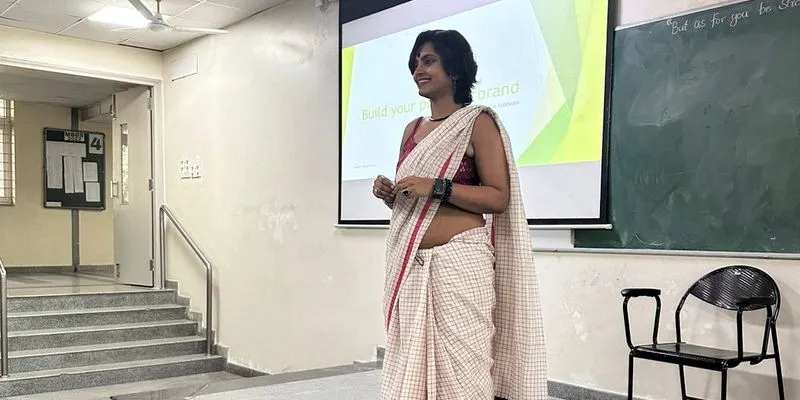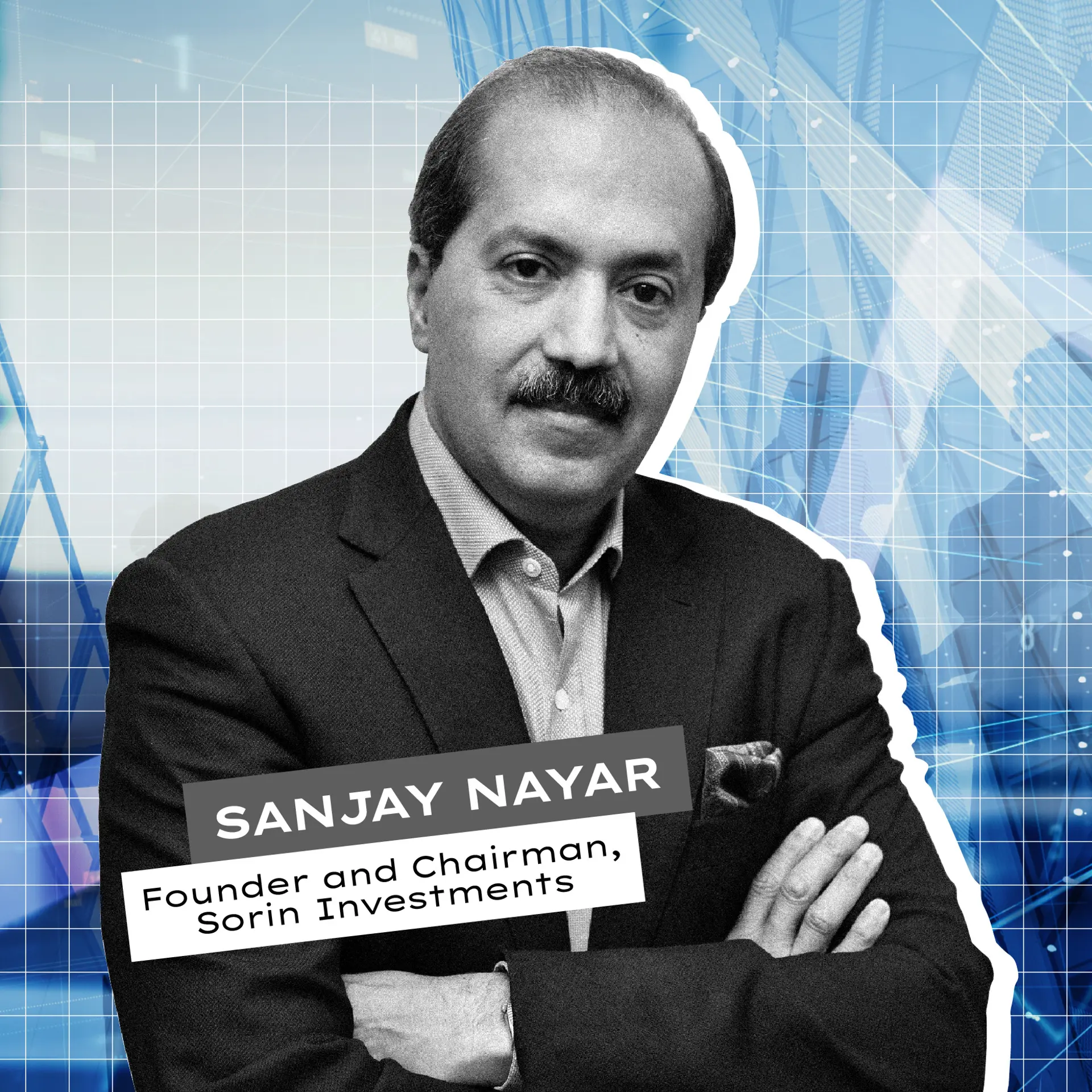[100 Emerging Women Leaders] How Shreya Krishnan is steering AnitaB.org India to support women and non-binary community in tech
Shreya Krishnan is the Managing Director of AnitaB.org India, a social enterprise that supports women and the non-binary community in technical fields, the organisations that employ them and the academic institutions training the future generation.
As a young environmental sciences graduate, Shreya Krishnan remembers having this idea of becoming a rebellious woman wanting to change the world.
“I was part of the Greenpeace generation and decided to become an environmental journalist and cover stories of strife and issues from around the world. I pursued journalism and media studies and joined The Hindu,” she tells HerStory.

Shreya Krishnan
From her first job to her current one as Managing Director of AnitaB.org India, Krishnan’s life and career has always been defined by social impact. She has worked with the United Nations Environment Programme, First Advantage and is on the advisory board of a number of non-profits. Her last role was at Aon as head of marketing, communications, CSR and D&I.
“I have been part of AnitaB.org in different ways. In 2019, I was an anchor at its Grace Hopper Celebration in Bengaluru, and in 2022, I hosted the US one. I joined its advisory board in April last year and in a month, they asked me to join full-time,” Krishnan says.
Chicago-based AnitaB.org is a global not-for-profit social impact enterprise dedicated to advancing women and the non-binary community in technology, and strives for equality and inclusion in the tech industry. It offers initiatives, programmes and events to empower women and non-binary technologists to build supportive networks and excel in their careers.
Towards inclusive technology
Today, tech impacts everybody, says Krishnan and reiterates that technology is not just about by whom it’s built, it’s also for whom it’s built.
“And, tech, if it’s white supremist tech that has been built on ideas of very stringent, heteronormative, cisgender, alpha-male white constructs that come through, has always been exclusive, because it’s being built by a homogenous set of people. It creates tech that’s not equitable or usable by all,” she explains.
Krishnan believes the minute you bring diversity into tech, it gets more intuitive, diverse and is able to access more.
“We want to have enough non-binary representation, because that dialogue has been going on,” she adds.
Krishnan also asserts that allyship is so important because the world is both masculine and feminine.
“When you look at every single sustainable development goal that's not met, the people that are impacted the most are actually women. Not only are they not picking up the brunt of being the reproductive machine of the world, they are also punished by and for it. So there needs to be a leveling that needs to come into play,” she explains.
For communities and oganisations
AnitaB.org India, a for-profit social enterprise works with different parts of the ecosystem. It has a global community of 1,06,000 women and 6,000 in India. For the community, it has in-person meets every quarter for women and non-binary people in tech or tech-adjacent fields.
The platform has tech and non-tech content available along with learning modules. The community is also preparing a curriculum for STEM education for young girls in Tier III and IV towns in the country.
“Our client network are organisations that are looking to ensure their ESG and D&I goals are met. Our partner network includes organisations like Sheroes, Aspire for Her Foundation, Her Key, Interweave and others with whom we collaborate for research, being part of their community activation and cross-leveraging our platforms,” she elaborates.
Additionally, AnitaB.org’s “Return to Work” programme supports women who have taken a break from their careers by offering them mentorship, learning programmes and assists them to transition to their new roles. It also has an “Apprenticeship Pathway”, in which young, high potential talent is put into a programme for a year with a partner organisation, offered mentorship and learning and is absorbed into the organsiation at the end of it.
The platform is working with Parity, an equal-rights organisation on research on mid-career challenges for women and with Assistive Technology Foundation at the intersections of what it means to be differently abled and a woman, and in terms of access to funding.
AnitaB.org also works with academia in IIMs, IITs and also Tier II and III community colleges through interactive sessions and meetups.
The organisation is conducting its Grace Hopper Celebration India (GHCI) from November 20-22 after a gap of five years. The event at the Bangalore International Convention Centre is expected to see 15,000 women and 240 speakers in attendance.
As a precursor to the celebration, it is organising roadshows in 11 cities taking the conversation of AI and bias forward.
Next year, it plans to bring Pitch Her to India, a pitch fest that works on a Shark Tank-like model where women entrepreneurs pitch their ideas and receive funding from investors.
As an advocate for women and non-binary people in tech, what does Krishnan feel about women dropping out of the workforce, usually at the mid-career level?
“How will you sustain women in an ecosystem that continues to tell them, ‘you should care for your child, don’t get a nanny. Why do you want to work? Your husband is bringing home the money. Why do you need a job? One of the biggest ways to hold women back is to not give them access to financial independence,” she asks.
Krishnan says it’s heartening that some organisations are moving the needle to get the connection between ESG, SDG goals and D&I. For those who have the intent but don’t have the wherewithal or resources, AnitaB.org will equip them with the right mix of tools and impact assessments to implement them.
As a champion of inclusion and diversity, she is also aware that the language we speak can often be biased.
“For example, when you write ambition, it means different things to different people, and especially if you look at it with a gender lens. Words like shame, guilt, confidence mean differently to women,” she says.
Along with Jacintha Jayachandran, Krishnan co-authored the book, Words Matter - The Language That Girls Need To Speak, a compilation of 40 words to help the reader to choose their vocabulary in a way that allows them to redefine how human beings are treated. With equality, and with respect.
Edited by Affirunisa Kankudti


![[100 Emerging Women Leaders] How Shreya Krishnan is steering AnitaB.org India to support women and non-binary community in tech](https://images.yourstory.com/cs/4/8e7cc4102d6c11e9aa979329348d4c3e/100EWLShreya-KrishnanFeatureImage-1730169237926.jpg?mode=crop&crop=faces&ar=16%3A9&format=auto&w=1920&q=75)




